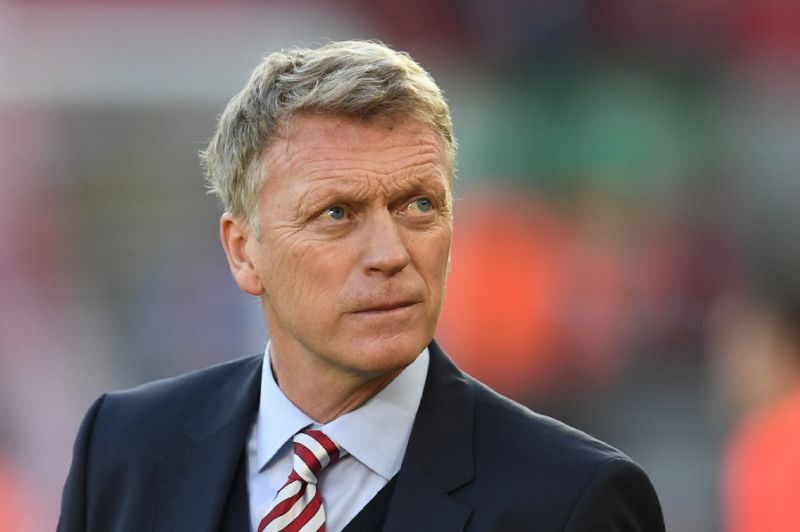London – Within hours of becoming Sunderland’s manager last July David Moyes boarded a privately chartered plane. He and the team were bound for a French training camp but an ominous grinding noise from the engines and slightly tense looks exchanged among the cabin crew soon confirmed they would be making a detour.
Engine failure had prompted an awkward emergency landing. With the benefit of hindsight, it seemed an ominously emblematic portent of an impending season destined to conclude with the club bumping down hard into the Championship and Moyes’s carefully burnished reputation in ruins.
The harbingers of trouble ahead did not end there. About to touch down at a small Austrian airport before a pre-season friendly, Sunderland’s plane subsequently endured a further drama. With a safe landing deemed impossible, the engines throttled ferociously, the aircraft’s noise pitched violently upwards and a shaken Moyes realized they were, in aviation parlance, “going round”, in other words taking off again.
Although it set lights flashing and alarms buzzing while briefly electrifying the atmosphere in the air traffic control tower, the pilot landed at the second attempt and always seemed to have a potentially high-risk situation under control. In sharp contrast Sunderland’s manager never really had a grip on a toxic Wearside inheritance.
With relegation confirmed by Saturday’s 1-0 home defeat against Bournemouth, Moyes has dropped heavy hints he could well shortly part company with the club and, if so, there will be few tears. The former Everton, Manchester United and Real Sociedad manager may be only 54 but his strangely dated mind-set has arguably exacerbated Sunderland’s long-standing stasis.
If, off the pitch, his observations that two of his African players, Papy Djilobodji and Didier Ndong, required more “Britishness” in their football jarred, on it, Sunderland’s tactics have frequently seemed somewhat binary for a division filled with kaleidoscopic positional rotation and ever shifting systems. Some players reputedly found training slightly old-fashioned.
The impression this may be a man stuck in his ways and reluctant to challenge received wisdoms was reinforced when Moyes claimed teams “don’t win things” with back threes.
Further question marks appeared when a manager who spent £30m last summer set about signing several players he had previously worked with at Everton and Manchester United, including Victor Anichebe and the United loanee Adnan Januzaj.
Having failed properly to address the squad’s chronic lack of pace and creativity, Sunderland’s seventh manager in five turbulent years consistently sidelined the gifted Wahbi Khazri, a playmaking success under Sam Allardyce last spring.
Sunderland fans cannot comprehend why Allardyce’s successor failed to acquire the former France midfielder Yann M’Vila, outstanding on loan last season, and available for £7m from Rubin Kazan, but Moyes was fast discovering that, to echo Kevin Keegan, the job “wasn’t like it said in the brochure”.
If he possibly did not fight hard enough for M’Vila, Sunderland’s dismal recent performances should be assessed in the context of some significant managerial mitigating factors.
Last July Moyes was unaware that Ellis Short, the owner and a man initially delighted to secure the Scot’s services at the fifth attempt, hoped to sell the club. Neither did he appreciate the scale of the debt – currently £110m with wages representing an alarming 78 percent of turnover.
After a series of grueling relegation battles Sunderland were an established bottom-five Premier League club shouldering a top-10 wage bill. Had Allardyce, highly impressive on Wearside last season when his sports science regimen raised fitness levels dramatically, not been lured away to, very briefly, coach England, he may conceivably have broken this cycle of struggle. Yet well before his departure the current Crystal Palace manager’s relationship with Short had become severely strained, with the transfer budget a sore point.
Privately Moyes – who considered resigning last autumn – feels similarly let down. His critics, meanwhile, argue that his limitations, particularly in the recruitment sphere, have been horribly exposed by Hull City’s Marco Silva. The Portuguese, after taking over in January and immediately selling his two best players, Robert Snodgrass and Jake Livermore, for a combined £20m, revitalized the club with seven eclectic imports, five on loan.
Whereas Hull recruited cleverly Sunderland have bought very badly in recent years, with only four of their past 47 signings sold on for a profit. Short has acknowledged this in a written apology to supporters.
It dictates that, despite crowds frequently in excess of 45,000 and a very well-appointed training facility – Allardyce said it was the best he had worked at – Sunderland and success have long been strangers.
Whoever is in charge next season will preside over radical change in an unforgiving Championship. With nine senior professionals, including Jan Kirchhoff, John O’Shea and Seb Larsson, out of contract in June a squad overhaul beckons.
A clause in Jermain Defoe’s contract permits the England striker to depart for free but Jordan Pickford’s excellent goalkeeping, featuring some brilliant footwork, will prompt a high-price transfer and the center-half Lamine Koné should also command a decent fee.
Talented as that trio are few disagree with Moyes’s oft-repeated assertion that, collectively, the squad is “limited”.
The Guardian Sport
